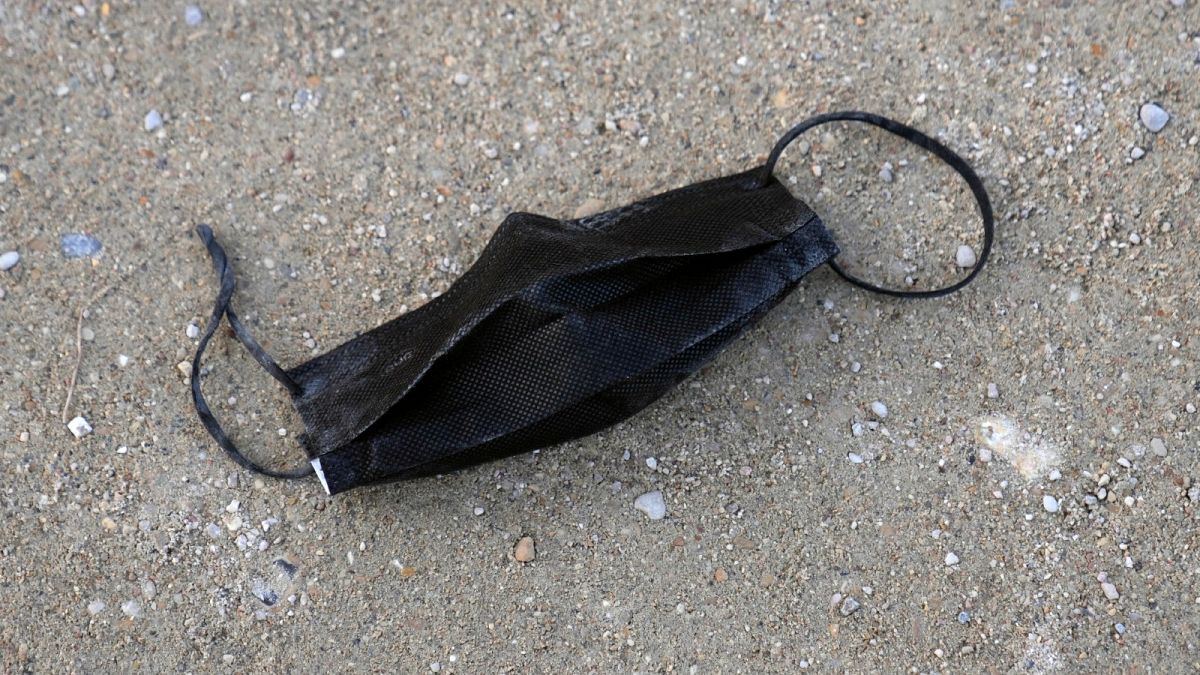Many countries are lifting nearly all COVID-19 restrictions. What does that mean for the future of the pandemic?
From France, where the government lifted an indoor mask requirement, to Austria which has decided not to enforce its vaccine mandate, many European countries are lifting restrictions even as COVID-19 continues to circulate at high levels.
There are 18 countries in the European region that have lifted nearly all virus measures, according to the World Health Organization (WHO).
Countries have become “more accustomed to living with this virus,” said Professor David Heymann, an epidemiologist at the London School of Hygiene and Tropical Medicine, and governments are in turn letting people do “their own risk assessment” rather than imposing restrictions on them.
Does that mean after two years of pandemic measures that we’re coming to the end?
Is this the end of the COVID-19 pandemic?
“I wouldn’t call it that at the moment,” Dr Catherine Smallwood, WHO’s COVID-19 incident manager for the European region, told Euronews.
“Certainly, we're in a phase of the pandemic where we might try and achieve moving away from the acute emergency that the pandemic has brought,” she said, but it will be a long time before we can “pretend that the virus isn’t there anymore”.
The goal for this year would be to exit that “emergency” phase, but it will depend on how it evolves around the world, she added.
There are still rising cases and deaths in several Asian countries, for instance, where there is lower population immunity than in Europe. Cases and deaths are at a two-year high in China.
Cases were overall decreasing in the European Union (EU) and European Economic Area (EEA) in the first week of March, according to the European Centre for Disease Control and Prevention.
In the public health body's last surveillance report from 10 March, mortality was still increasing in 10 countries due to the spread of the Omicron variant. Around 83% of people in the EU and EEA are fully vaccinated against COVID-19.
"The resurgence will depend, I believe, on the population immunity in the country and as well the vaccination coverage and the history of previous illness," said Prof Heymann, who points out that many people could have already had COVID-19 without symptoms.
Will cases and hospitalisations rise as measures are lifted?
Infections are starting to rise again in several European countries that passed an Omicron peak, with a new record-high number of cases in Germany.
On Wednesday, there were more than 2,000 new hospitalisations and more than 200 deaths in a day, about half of the number of deaths recorded at the peak of Germany’s winter wave last year.
Austria also has had rising cases and a slight rise in hospitalisations, though it’s just a little over half the level of hospitalisations seen during last year’s fall wave that prompted the government to impose a lockdown.
“In countries that already have lifted measures, the virus will, of course, take advantage of that. There will be an increased incidence. There will be increased mortality,” said Dr Smallwood.
Prof Heymann says these surges may be like other coronaviruses and influenza with the onus on individuals to make their own decisions about risk.
“Countries will need to focus on hospital admissions and on hospital deaths…and if they begin to increase that they'll want to take some additional measures,” Prof Heymann said.
Many experts hope that there won’t be the more strict measures such as lockdowns that Europe saw previously due to the population immunity through vaccination and natural infection.
But German health minister Karl Lauterbach said this week that without a vaccine mandate, it could be difficult to control the pandemic later on in the autumn.
“We are seeing high numbers of people dying, 15,000 people in the European region (which includes part of central Asia) just last week. Those numbers are coming down, but we will see cases increase as countries lift the measures,” said Dr Smallwood.
What are the greatest risks in the pandemic’s future?
There could be new mutations and variants that escape the protection of vaccines, experts say.
“But if that occurs, we're fortunate to have vaccines, which can be modified very, very rapidly and used very effectively,” Prof Heymann said.
Dr Smallwood says that while there are no red flags at the moment, the World Health Organization is constantly monitoring changes to the virus.
In addition to strong surveillance, “we can anticipate the risk" of the virus, said Antoine Flahault, director of the Institute of Global Health at the University of Geneva.
“We know that the virus transmits in indoor areas that are poorly ventilated and accommodate the public,” he said.
One of the main issues to work through is better ventilating these areas without sacrificing energy use, he added.
The current risk is for those in the population who remain vulnerable to the illness, the unvaccinated who have comorbidities and those who are immunocompromised for whom vaccination does not work.
“I think that we should all be extremely aware that there remain vulnerable people in our populations that may be extremely anxious by the recent announcements that more of these simple measures have been lifted,” said Dr Smallwood.
“I think it's on each of us to really think about our responsibility towards those people.”

